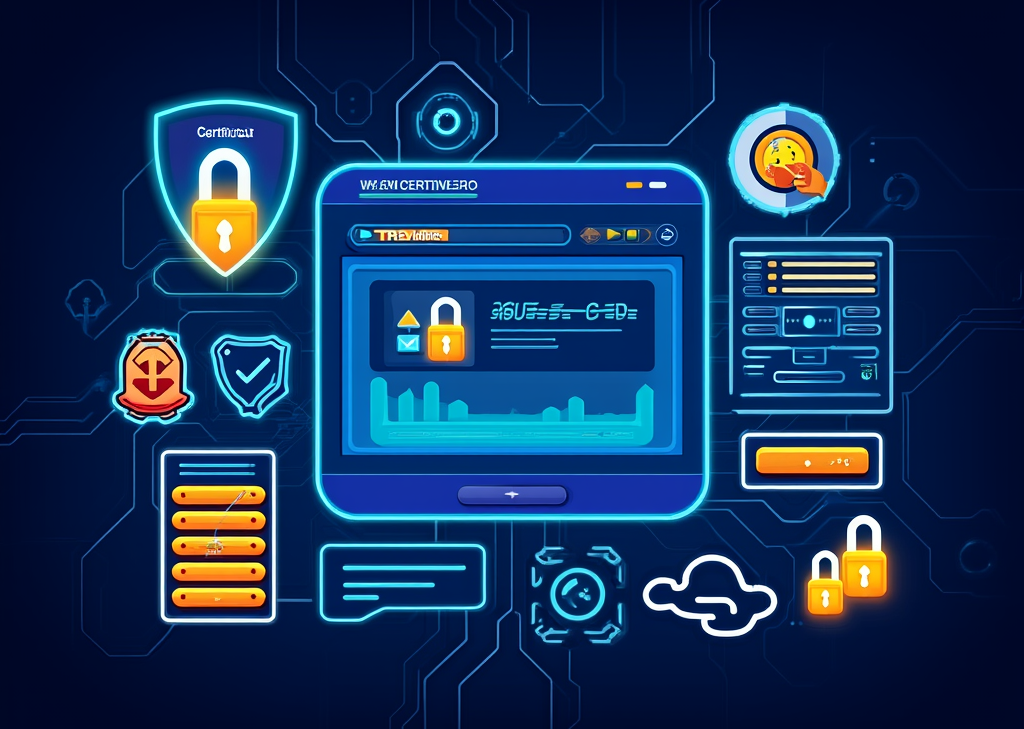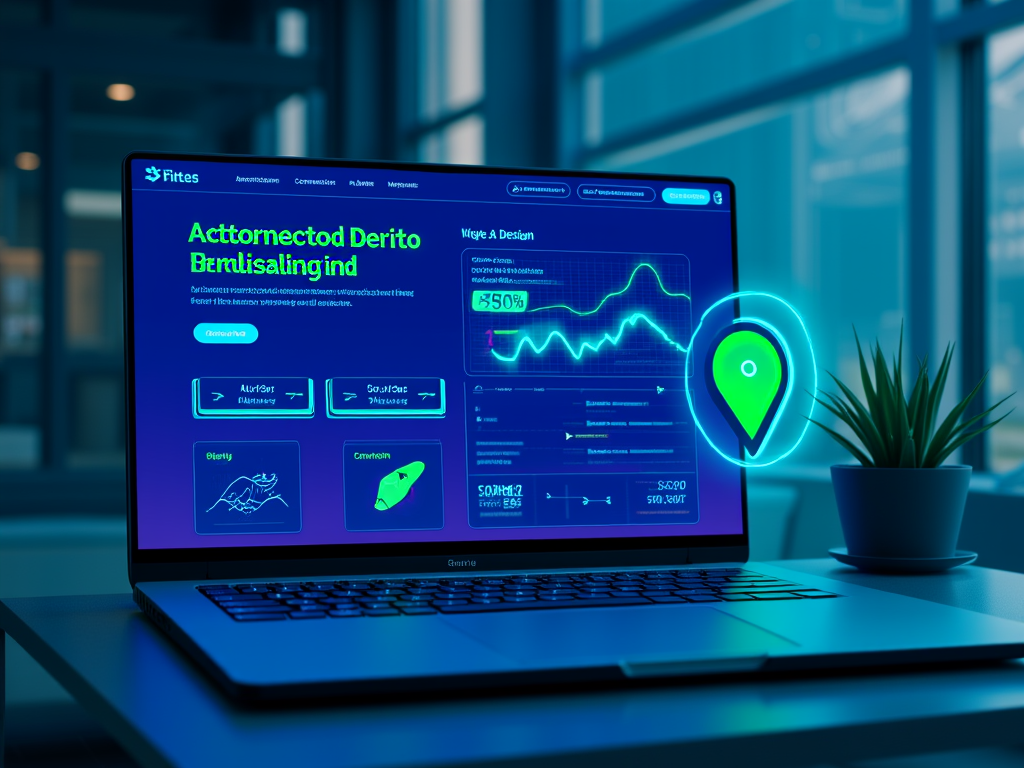Secure hosting for e-commerce: Protecting customer data
Meta description:
Ensure your e-commerce store protects customer data with secure hosting, PCI-DSS compliance, SSL encryption, and proactive security practices for a safe online shopping experience.
Introduction
In the vast ocean of e-commerce, where every click becomes a breadcrumb of valuable customer data, the imperative for secure hosting has never been stronger. Imagine a cozy local shop; people trust it because they know the owner is genuinely invested in their privacy. Transition this analogy to the online realm: your e-commerce platform is that shop, but it's only as secure as the digital walls and locks you install. With cyber threats evolving daily, embracing secure hosting solutions isn’t just wise; it’s a must to convert casual browsers into loyal customers.
Choosing Secure Hosting and Compliant Platforms
The bedrock of e-commerce security is a vigilant choice of secure web host paired with a PCI-DSS compliant e-commerce platform. Every business processing payment card data faces the looming specter of compliance.
-
Why PCI-DSS Compliance Matters: Picture this—a customer inputs their credit card information. That split second can determine whether their trust in your platform flourishes or crumbles. PCI-DSS (Payment Card Industry Data Security Standard) lays down the law for how sensitive information is handled, ensuring heavy fines don’t accompany the rarer but harrowing events of breaches. E-commerce is no fairy tale, after all; fail to follow these guidelines, and you invite chaos into your business[1][2][4].
-
Secure Socket Layer (SSL) Enchantment: Let’s talk about peace of mind. An SSL certificate is like a protective charm, safeguarding the sacred exchange between your site and its visitors. When HTTPS flows through your business, customers’ worries about data theft dissolve. That little padlock in the browser? It signifies not just trust, but a commitment to safety in their shopping journey[1][3][6].
-
Selecting venerated Hosting Providers: Choose wisely among the pearls of hosting—the likes of Bluehost, WP Engine, InMotion Hosting—all have crafted their platforms to meet e-commerce needs. Features like automated SSL provisioning, comprehensive firewalls, and round-the-clock monitoring foster an environment where customer data flourishes rather than flounders[2][7]. Each provider marries their infrastructure with PCI compliance, enabling a seamless shopping experience, promoting trust for platforms like WooCommerce and Shopify that thrive on security-integrated ecosystems[4][7].
-
Performance & Reliability: Your store isn’t just a digital catalog; it mirrors the lifeblood of a business. When pounding the virtual pavement, users expect fast, reliable access. Choosing a host that promises uptime, rapid page loads, and proactive DDoS protection keeps your doors open, even when the digital winds howl[2][7][8].
Example: Take Bluehost, where free SSL certificates are just the beginning. Their dedicated IPs and tailored WooCommerce hosting provide not just safety but the assurance that your business is built on a reliable, secure foundation[2][7].
Key Security Practices and Features for E-Commerce Hosting
A sound hosting environment is only the beginning. The real guardian angels are those operational practices and features that keep the darkness of cyber threats at bay.
Essential Features:
-
Malware Surveillance: Imagine a vigilant watchdog; continuous malware scanning ensures threats don’t creep in unnoticed. Without this, you might as well leave your front door wide open[3].
-
Firewalls to the Rescue: These digital sentries keep a watchful eye on incoming data, blocking cyber miscreants who wish to breach your fortress through attacks like SQL injections or unauthorized access attempts[3][4].
-
The Importance of Automatic Updates: Think of your CMS and plugins as living organisms. They must evolve. Automating updates ensures these components receive patches without the risk of human error delaying necessary defenses[1][3][7].
-
Regular Backups as Safety Nets: Picture a tightrope walker; a safety net beneath ensures that if they fall, they can bounce back. Regular backups mean restoring your site to its pre-disrupted state takes mere minutes, not days[3][7].
Operational Best Practices:
-
Crafting Strong Password Policies: Enforce complex passwords—both for team members and customers. It’s the digital equivalent of a sturdy lock on your door, thwarting brute-force intrusions[6].
-
Guarding Access to Sensitive Data: Limit access to critical information only to those who genuinely need it. This shoulder-tapping policy minimizes insider threats and cyber-espionage risks, reinforcing the integrity of customer information[6].
-
Managing Plugins and Integrations: Think of third-party plugins as guests in your house. You must vet them thoroughly. An unchecked invitation can open gateways to malicious breaches[6].
-
Implementing Multi-Factor Authentication (MFA): Layering security like a well-fortified castle makes unauthorized access exceedingly difficult—even if passwords fall into the wrong hands[6].
Your e-commerce store is more than just a platform; it’s a nexus where trust, security, and commerce unite. Protecting customer data requires not just the right choice of hosting but implementing a framework of ongoing security practices that envelop your business in a powerful, invisible shield. As digital landscapes evolve, so too must our vigilance. The goal is unwavering security—a sanctuary of safe transactions and safeguarded journeys for every customer.
FINDDOMAIN.GE (Internet services LLC) is a very interesting and rapidly developing IT company. The main directions are: web development, domain and web hosting. It also offers clients sub-services and outsourcing related to the main services.
BEST OFFERS:
Do you want to create your own company website or create your own online business on the Internet?
– WEB HOSTING
– DOMAIN REGISTRATION
– WEB DEVELOPMENT
– SITE BUILDER



Building a Comprehensive Security Strategy
Developing a robust security framework demands a thorough understanding of your e-commerce environment and the dynamic threats it faces. A tailored approach to both technology and procedural safeguards becomes paramount. Here, we delve into additional tactics that solidify your defenses and ensure a secure shopping experience.
Continuous Monitoring and Incident Response
Security isn’t a one-off approach; it’s a continual commitment. Implementing real-time monitoring solutions allows you to keep an eye on unusual activity or anomalies in traffic.
-
Intrusion Detection Systems (IDS): Envision a smoke detector—only this one alerts you to intrusions rather than smoke. An IDS constantly scans network traffic, alerting administrators when suspicious behavior arises, enabling swift action before breaches can escalate into disasters[1][3].
-
Incident Response Plan: Having a clear, actionable incident response plan means being prepared when security incidents do occur. Define roles, set communication protocols, and create detailed steps for containment, eradication, and recovery. A well-prepared response mitigates damage and restores trust swiftly in the aftermath of an incident[ 3][6][7].
Educating Your Team
Your team is your first line of defense, and investing in their education pays dividends. A well-informed staff can recognize threats that may otherwise bypass automated systems.
-
Regular Training Sessions: Ensure your staff understands basic security protocols, including identifying phishing attempts and secure data handling[4][6]. Organizing periodic training fosters a security mindset that benefits the entire organization.
-
Simulated Phishing Attacks: Conduct mock phishing attempts to gauge employee responses and reinforce awareness. Seeing employees identify potential threats in a controlled environment enhances their readiness to tackle real risks[4][7].
Regulatory Compliance and Future-Proofing
As your e-commerce venture grows, so do the regulations that govern it. Keeping up with evolving compliance standards becomes critical in a landscape increasingly under scrutiny.
Ongoing Compliance Checks
Ensure your e-commerce platform regularly undergoes compliance checks. Staying current with PCI-DSS standards and any relevant local regulations enhances your reputation and safeguards against potential legal repercussions.
-
Self-Assessment Questionnaires (SAQs): Utilize SAQs to evaluate your compliance status and identify areas for improvement. These checklists help you remain vigilant and adapt to changes in guidelines[1][6][7].
-
Third-Party Audits: Consider hiring cybersecurity firms for periodic audits of your systems. Independent assessments help identify vulnerabilities you might overlook and generate credibility with customers[4][6][7].
Embracing Emerging Technologies
The digital realm is ever-evolving, and with it comes technological innovations that can enhance security.
-
Artificial Intelligence (AI) in Security: AI tools analyze vast amounts of data to detect patterns indicative of fraud and cyber threats. Utilizing AI can significantly reduce the lag in threat detection and response times[3][6][7].
-
Blockchain for Payment Security: As a cutting-edge technology, blockchain offers enhanced data integrity and secure transactions, making it increasingly popular for e-commerce businesses seeking to bolster their security architectures[5][7].
Conclusion
In this age of digital commerce, the safety of customer data is paramount to maintaining trust and driving growth in your e-commerce business. From selecting secure hosting and implementing rigorous security practices to fostering a culture of security awareness, every precaution you take is a step toward fortifying your brand.
Secure hosting for e-commerce isn’t merely a technical requirement—it’s a commitment to ensuring your customers feel safe while navigating your digital aisles. As threats continue to emerge, your vigilance and adaptability will not only determine the safety of sensitive information but also the sustained success of your venture.
Investing in a holistic security approach, one that integrates technology, compliance, and education, paves the way for a resilient e-commerce environment. Each measure you enact contributes to a powerful fortress where customers can explore freely, confident in the knowledge their data is protected.
For deeper insights into enhancing e-commerce security, check out these helpful videos:
- How to Secure Your E-Commerce Site Against Cyber Attacks
- Building a PCI Compliance Strategy for E-Commerce
- Using AI for Enhanced Security in E-Commerce
References
- PCI Security Standards Council
- Bluehost
- Cybersecurity & Infrastructure Security Agency
- WordPress.org
- SME Strategy’s Overview on Blockchain
- Security Magazine
- NIST Cybersecurity Framework
FINDDOMAIN.GE (Internet services LLC) is a very interesting and rapidly developing IT company. The main directions are: web development, domain and web hosting. It also offers clients sub-services and outsourcing related to the main services.
BEST OFFERS:
Do you want to create your own company website or create your own online business on the Internet?
– WEB HOSTING
– DOMAIN REGISTRATION
– WEB DEVELOPMENT
– SITE BUILDER





![Website Hosting Providers in [Local Area]: What to Choose](https://besthosting.ge/wp-content/uploads/2025/08/website-hosting-providers-in-local-area-what-to-choose.jpg)
![WordPress Website Experts in [Your City]](https://besthosting.ge/wp-content/uploads/2025/08/wordpress-website-experts-in-your-city.jpg)

![Web Development Services in [Local Area] for E-commerce](https://besthosting.ge/wp-content/uploads/2025/08/web-development-services-ecommerce-local-area.jpg)